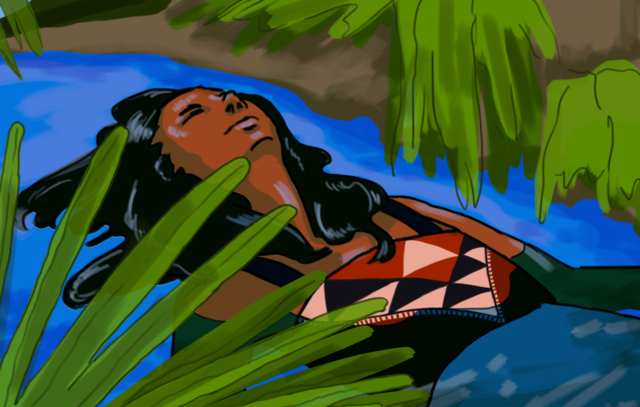In March 2017, the Whanganui River in New Zealand was granted full legal rights of a human being after more than 140 years of legal battles by local MÄori with the passing of the Te Awa Tupua Act.
Recognized as a person, the Whanganui is now entitled to legal representation in court and ensured safeguards against pollution.
The recognition of the Whanganui as a person is the first for natural formations in New Zealand. The local MÄori’s insistence on the river’s personhood reflects traditional cultural practices of treating natural features, such as rivers and mountains, as being indistinguishable from humanity.
Shortly after the court ruling in New Zealand, India implemented similar measures for the Ganges and Yamuna rivers.
The measures are a win for local indigenous people with religious and spiritual connections to the rivers in question. Beyond that, personhood status protects the rivers from excessive environmental abuses like pollution.
The most significant quality of personhood is that if the Whanganui is abused, it is legal for the MÄori to sue for reparations.
Obviously, the Whanganui is not allowed to vote or be summoned for jury duty. The rights of personhood starts and ends with protection from pollution.
Just as human beings have the right to not be assaulted or accosted and if so, can seek retribution through the legal system whereas the Whanganui, Ganges, and Yumuna rivers receive complementary protections from “assault”.
However, it is important that we consider the implementation of such measures in a court of law.
By granting personhood to a natural entity, the law is not setting a standard for protecting rivers as a body of water. The definition of how we as humans treat nature remains removed from humanity itself.
We should strive to protect rivers, valleys, coral reefs, not because we see a little bit of ourselves in them, but because they deserve separate procedures from existing protections on humans.
Failing to consider the value of rivers as nature reinforces an anthropocentric view that only humans, organisms, and natural features benefiting humans are the only components of nature that deserve mercy from man-made abuse.
If courts are going to bestow rights to non-human animals and natural entities, the language must be clear that the party in question has value in its own rights.
The main purpose of distancing natural entities from personhood is to develop a mindset that keeping rivers clean is a good idea from the start. If one would have to grapple with a river’s personhood to decide if they will regard it with decency, then the battle is already lost.
Appreciation for natural features should not originate in a selfish preference above the rest of nature. And yes, I mean the rest of nature, because any conception of nature that doesn’t include humans fails to recognize our place in the ecosystem as just another member.
Imagine going through the rigorous process of obtaining personhood for our own San Marcos river. Why does it take litigation and arbitrary, “person” titles to keep us from throwing confetti into the river that provides us with life and recreation. Rather than make up legal reasons to protect our rivers, we should stress the importance of an inherent respect for the environment that sustains us. We must be careful not to regard personhood as the only way to respect Mother Nature.
Categories:
Respect rivers as rivers, not people
January 21, 2018
Illustration by Kennedy Swift | Staff Illustrator
0
Donate to The University Star
Your donation will support the student journalists of Texas State University. Your contribution will allow us to purchase equipment and cover our annual website hosting costs.
More to Discover






